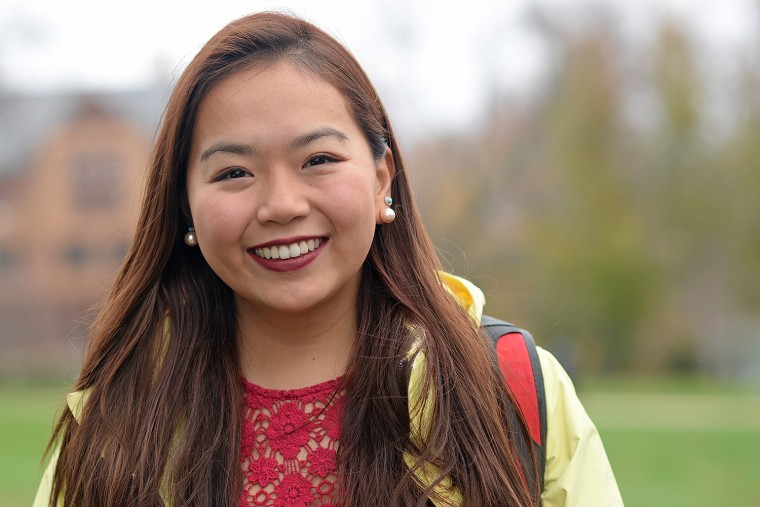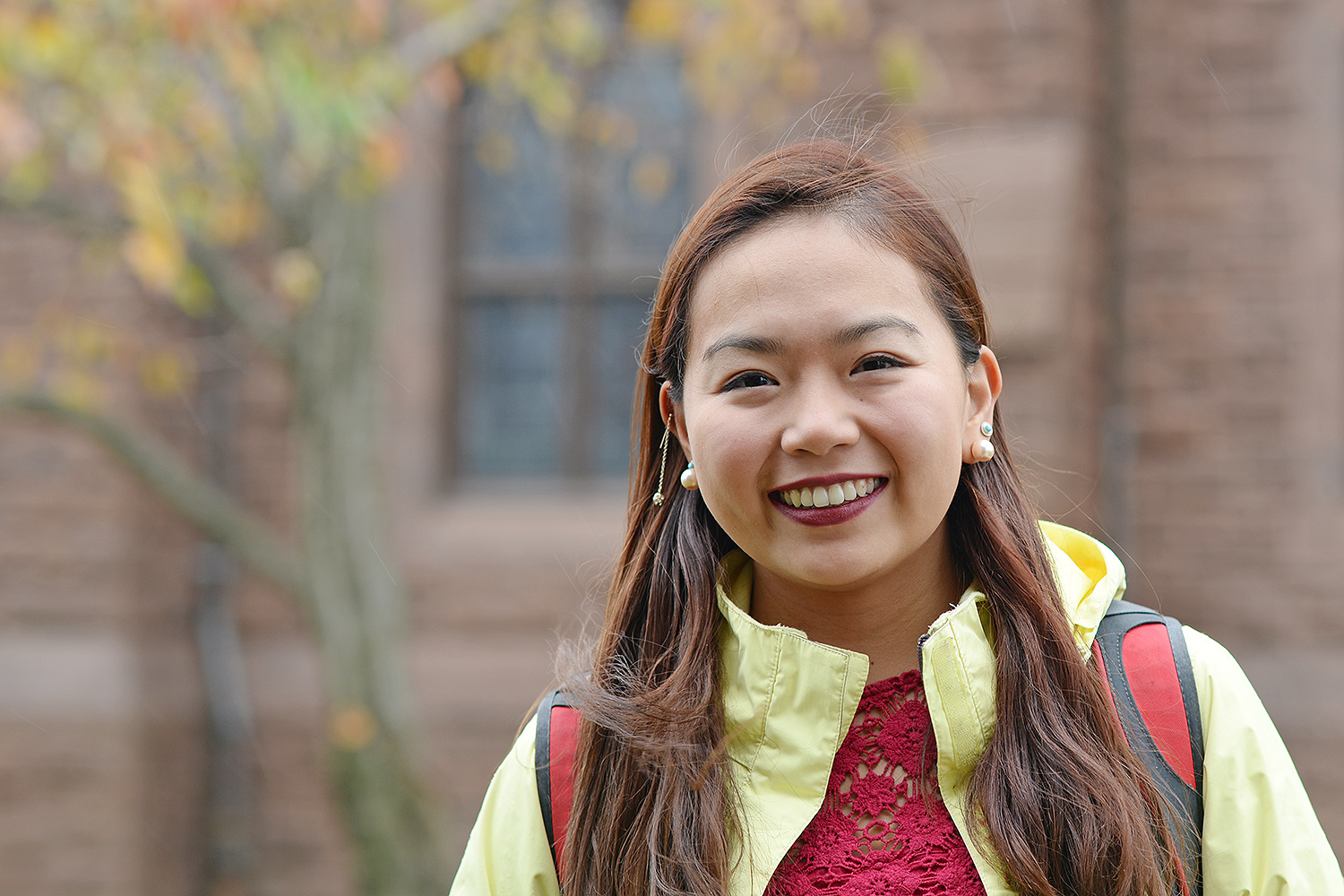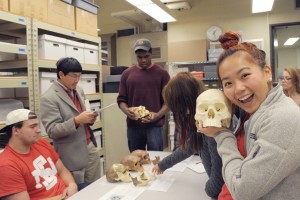Science in Society Major Lu ’17 Interested in Public Healthcare, Neurophysiology


Q: Anna, where are you from and what attracted you to Wesleyan?
A: I am from Woodbridge, Conn. and I was born in New York, but I didn’t seriously look into Wesleyan until October of my senior year of high school! When I was looking for schools I wanted to stick closer to home and, at the time, I was being recruited for swimming—a sport that had dominated my time during high school and that I had decided to pursue at the collegiate level. Of all the schools I looked at, I narrowed it down to a couple NESCAC schools and Wesleyan was the best fit for me.
Q: What are you majoring in and why?
A: I came to Wesleyan planning to major in psychology, but as time progressed I fell in love with neuroscience and behavior. Last May, I changed my major from neuroscience to the Science in Society Program (SISP), a program that allows me to reach outside my comfort zone and, with a philosophy concentration a focus on ethics and political philosophy, allows me to focus on both current and historical issues within our healthcare system.
Q: Why did you decide to change majors?
A: My parents are neuroscientists and were neurosurgeons back in China. I’m the older child of two in my family, as well as the first generation Chinese American student-athlete in my family to attend such a prestigious school. While I originally followed in my parents’ footsteps, I never fell in love with neuroscience the way I’ve fallen for the Science in Society Program. The time I spend learning about science in society and narrowing down a big issue within public healthcare to the commodification of our own bodies is absolutely mind blowing to me.
I don’t regret the hours I spent at a lab desk, or in a fume hook, mixing chemicals as well as making observations through the lens of a microscope as a neuroscience major. During my time at Wesleyan, I’ve been able to educate myself in a way I never imagined. I consider myself an existentialist; that is, I believe that what people choose to do reflects who they are and confirms who they will become. I value my social and extracurricular interactions, and I just didn’t think locking myself in a room mixing chemicals or performing surgeries on mice would be conducive to a happy future for me.

Q: What is your interest in healthcare?
A: I’ve always been a big advocate for personal health. I guess I can thank my parents for always being concerned about personal hygiene and health; both of them graduated from medical school, and I’ve always admired them for what they’ve done and how far they’ve come.
Q: It sounds like your parents were quite influential.
A: My parents have had a big effect on me, and I appreciate them for their never-ending support, especially now that I’ve grown up and I’m experiencing more in the world.
Q: What have been your most instrumental classes at Wesleyan so far?
A: I think my most instrumental class was Cellular Neurophysiology with Associate Professor Gloster Aaron. I was going through a personal and identity crisis at the time because I found the hard sciences were just not suitable for me anymore, and yet this class with Professor Gloster really helped me realize the importance of what I had done so far, at that time, and that I don’t have to pursue medical school right after college but have other options as well. Another class I really enjoyed was Classical Chinese Philosophy taught by Professor Stephen Angle in the College of East Asian Studies. I am a CEAS minor, as well as a philosophy concentration in the SISP major, and it was an amazing class for me to really go deeper into the history and understand why my parents raised me the way they did.
Q: What extracurricular activities are you involved in at Wesleyan?
A: I was on the Wesleyan Swimming and Diving team my freshman year, but I left the sport when I found myself going through the motions just because I was comfortable with my routine. I’ve been involved in the We Speak We Stand Bystander Intervention group on campus; we did a performance during freshman orientation, and I loved the experience and really hope I can partake in it again! I’d also like to have more experience within the community as well, and I’m very curious about the Wesleyan Center for Prison Education’s teaching program.
Q: What are your hobbies?
A: I’ve always been an athlete, so after I stopped swimming I decided to try running. I ran the half-marathon in Middletown in April, and I plan on running my second half-marathon this coming spring. And now that I have an apartment I can finally cook, so I enjoy making food with friends.
Q: How will you wrap up your junior year?
A: Right now I’m focusing and drilling down on my new SISP major. It’s so exciting and interesting, and very suitable for me.

